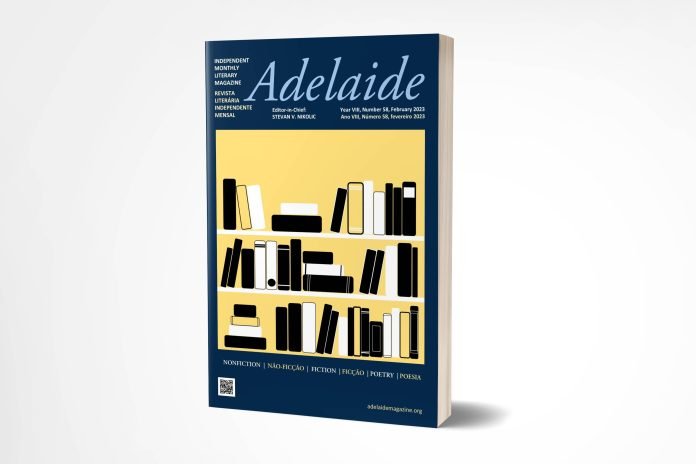Archeology
Two old men with trowels and a permit
dig a strategic trench from just beyond
the base of the tulip poplar to the
edge of the mound, where an old etching now
suggests something lies undiscovered. They
often spent their Saturdays at the town’s
little museum examining the
locally-collected artifacts brought
to them for identification, worked
pieces of exotic pink flint unearthed
with plow or grader, until they came on
a drawing in the archives unlike all
the others sketched by surveyors from the
hills looking down over the plain more than
three hundred years ago, before any
settlers even arrived, an image not
reproduced afterwards in a book or
collection, just waiting to be found
on the shelf. Though the artist’s swirled letters
prohibit determining whether a
symbol’s some commentary made to mark
a spot or indicates an entrance or
appears the sunken roof of a tomb, they
think they’re on to something never revealed.
They’re here at dawn with their shovels, bottled
water, digging. Of course settlers buried
themselves here too, around the conical
mound, their illegible headstones all in
rows, so what’s to find is what’s left behind
in this wrought-iron-fenced graveyard with more
Revolutionary War soldiers than
anywhere else but New England. Broken
arrowheads, clay effigies will mix with
the clay pipes and mother-of-pearl buttons
they’ll unearth, the buttons carved of mussel
shells collected from the shoals where creeks met
the Great River, now submerged after the
damming. Up the state two lane, at the edge
of the county, hill slides have exposed an
intact precursor to the dinosaurs,
wanderer of this same old dried ocean.
My One-Eyed Bear
Now that the world’s opened up again,
jobs on every corner, major grants awarded
to address poverty and inequity,
the drum beat against guns gaining decibels,
our foeti commanded to appear,
the world’s about to become perfect.
What do I do with my old rage,
embraced since childhood,
the only I’ve ever known,
in order to move on to a new kind of anger?
Shall I lay it down like a one-eyed stuffed animal,
rubbed to the weft, in order to preserve
its memory for my personal history?
Toss it in the trash amidst bits of the
material world I’ve sloughed off,
as one disposes of fingernail parings?
Continue to carry it until there’s
nothing recognizable remaining
of more than I can possibly imagine?
The new fury of today rises
out of compost-laced soil
still flecked with lead and arsenic,
fueled by hope in spite of odds,
growing through invisible links and codes
in the digital dimension,
bringing people together
to rally and claim their square
foot on the sidewalk
when they’ve never worked a field.
This new kind of hating means
a new kind of loving though
I adore my one-eyed bear, once shrieked
when he was misplaced, used him as a pillow,
companion, punching bag, possession.
As Long As They Can
When you can’t find slumber for thinking,
keep rolling over, flipping your pillow
to its cool side, keep seeing that rectangular
pit in the ground where the overflow of bodies
was laid. If for hours you’ve found yourself
covering and uncovering with the blanket,
get up, step out of bed without the light.
Find your slippers.
The dog will click behind you to the kitchen,
cats blinking surprised at you from the chair.
You have laundry to do, a few dishes.
The toilets need scrubbed,
the sinks having taken on that waxy
look they get in the home of bachelors.
Start there and move from one end of the house
to the other, room to room,
on your knees if you have to.
No music, no television,
nothing but the silence you’re tired of.
Let the rest sleep as long as they can.
Communique #9
The ride was easier than expected,
the road having held up through the winter,
and the drought, they said, kept all from turning
to mud, faces on the other side of
the window like in those stories I heard
as a child except they were real, while our
truck kept moving, the stunned gazes slow to
acquire understanding, hundreds of them
becoming thousands on the road when we
closed our eyes and imagined the outcome,
privilege making us see the future.
Bathing Beauty
The days pass like tiny ripples that bump
across the horizon in August when
there’s no wind, frigates too high overhead
to be seen, waiting for low air currents,
webbed feet never touching land, signal of
clear skies and a relentless sun, the hope
of updrafts. I stumble in, the sandy
bottom planed like pavement, its slope toward the
continental shelf unnoticeable,
the ocean cool, rising to envelop
until little by little I arrive
at the place where my chin meets the water,
unable to venture further without
making effort, salt making me buoyant,
more graceful in the ocean than on land.
Most recently Sandra Kolankiewicz’s work has been accepted at Fortnightly Review, Consequence, Hoxie Gorge, and Free State Review.



















